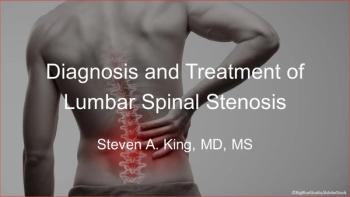
A new review summarized the current evidence about diagnosis and treatment of lumbar spinal stenosis. What are the key takeaways for primary care?

A new review summarized the current evidence about diagnosis and treatment of lumbar spinal stenosis. What are the key takeaways for primary care?
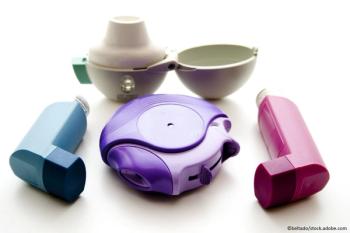
Authors of this first study to compare the combinations head-to-head suggest that the glycopyrrolate combination is appropriate for long-term COPD management.

Three-quarters of stroke patients in a Swiss registry had at least 1 undiagnosed risk factor at the time of the event, most commonly hyperlipidemia or hypertension.
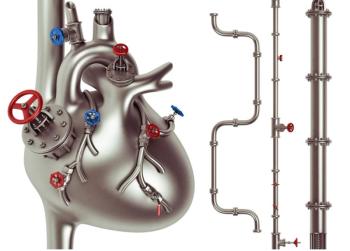
US CV health is well below ideal, with 80% of adults scoring as only low or moderate in the first published study using AHA's new Life's Essential 8 algorithm.
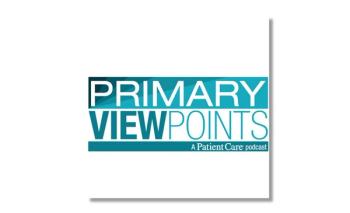
"Primary Viewpoints," a podcast from Patient Care Online, brings you an exclusive interview with Henry Mahncke, PhD, on the impact of cannabis on cognitive health.

Slide Show: The AHA added sleep duration to its Life's Simple 7 cardiovascular health construct and updated sections on diet, lipids, blood glucose and smoking.
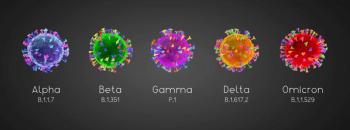
Data from the CDC on boosters and US vaccination rates and from the Johns Hopkins COVID-19 interactive map on cases and deaths in the US and worldwide.

New data showed a sharp drop in HIV tests administered in health care and non-health care settings from 2019 to 2020—primarily among persons disproportionately affected by HIV.

If the atogepant label is expanded, the drug will be the only gepant approved for the broad indication of prevention of both episodic and chronic migraine.

The new approval for risankizumab makes it the only interleukin-23 inhibitor for moderately to severely active Crohn disease, according to AbbVie.

Lead author of a study of nearly 200 000 adults with type 2 diabetes that revealed significant clinical inertia in the critical period following initial diagnosis expands on the implications.

Data from the CDC on boosters and US vaccination rates and from the Johns Hopkins COVID-19 interactive map on cases and deaths in the US and worldwide.

Non-Hispanic Black and Hispanic adults with undiagnosed prediabetes are less likely than White adults to appreciate their risk for overt type 2 diabetes.

Statin-treated patients at high atherosclerotic risk experienced significantly slower progression of arterial stiffness vs those not taking statins in a cohort of more than 5000 patients.

Change in HbA1c as a guide for T2D treatment intensification is steadily yielding to presence of/risk for comorbidities as pluripotent agents win guideline favor, observes a VA clinical investigator.

The vote to render abortion illegal at the federal level means states will now govern abortion rules, which could lead to abortion being outlawed in half the country.

The FDA ban yesterday on Juul vaping devices and nicotine e-liquid pods drew praise from the American Medical Association, American Thoracic Society, American Lung Association, among others.

Data from the CDC on boosters and US vaccination rates and from the Johns Hopkins COVID-19 interactive map on cases and deaths in the US and worldwide.

The FDA today denied Juul Labs' premarket tobacco product applications and ordered all products removed from shelves nationwide, ending a 2-year review.

A literature review comprising ~1.3 million patients infected with SARS-CoV-2 reveals women are 22% more likely vs men to develop long COVID, yet treatment is no different.